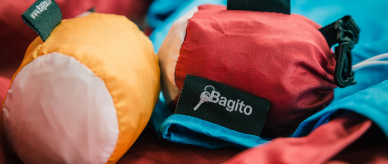Are you familiar with the term greenwashing? It seems to be everywhere lately but might be a little confusing to understand.
According to The Standard, “greenwashing is misleading marketing used to portray a company or product as sustainable and eco-friendly” when they aren’t actually at all. So why would a company do this?
With the rise in the popularity of sustainable living, many brands are jumping on the bandwagon without actually contributing anything to the sustainability community. This is problematic for many reasons, and it’s important to recognize when a company is greenwashing.
So before you get ready to spend your hard-earned money on a new product, make sure you know what to look out for when you suspect a company of greenwashing.
Jumping on the Bandwagon
If you’re familiar with a certain company or brand and have never noticed them mention anything about sustainability before, there’s a chance they may be greenwashing. Now, don’t get me wrong, some companies are trying to become more sustainable, which is great. But just because some are doesn’t mean that all are.
Lately, Boohoo was called out for greenwashing. Notoriously involved in the fast fashion industry, this brand announced its sustainability plans without any actual evidence of doing anything helpful to the environment.
Boohoo announced a “sustainability and style" collaboration with Kourtney Kardashian Barker that would consist of a 46-piece collection of garments made from "recycled fibers.” While this sounds great from the outside, it actually doesn’t really mean anything. After all, what good is using recycled fibers for a capsule collection when the rest of the brand is mass-producing item after item while only paying garment workers around $4.37 an hour?
By using a celebrity endorsement to back up the brand, many consumers can be led astray and convince themselves that their claims of sustainability must be true. After all, why would a celebrity tie their name to something that isn’t true?
“What good is using recycled fibers for a capsule collection when the rest of the brand is mass-producing item after item while only paying garment workers around $4.37 an hour?”
All Buzzwords and No Proof
Much like Boohoo’s collaboration with Kourtney, many other brands will claim sustainability with absolutely no proof to back it up.
It’s easy to throw around false facts backed up by paid scientists, much like it’s easy to claim you’re doing something good for the planet. However, this means absolutely nothing when there’s no evidence to back it up.
Some companies will use buzzwords like “recycled” and “eco-friendly” without explaining how their products meet these qualifications. It’s easy to claim your products are good for the environment, and when consumers don’t investigate these claims, there are no repercussions for the company.
Vague Explanations
Another problem is that companies will use phrases like “non-toxic” and “biodegradable materials” without explaining what they mean. For example, some products can be naturally non-toxic without that meaning the brand as a whole is sustainable. After all, a non-toxic product packaged in toxic plastics is extremely counter-productive.
These types of claims are often taken at face value without any real questions or concerns about their legitimacy. For years, soda companies have donned their bottles with “made from 100% recycled materials” all in the name of becoming more sustainable. While their bottles are in fact made from recycled materials, they fail to mention that they’re still at the top of the list of worst plastic polluters in the world. Using these vague types of sustainable marketing techniques purposely leave out half of the equation.
“Some products can be naturally non-toxic without that meaning the brand as a whole is sustainable.”
How to Spot a Real Sustainable Company
There is a silver lining to all of this. Each day more and more companies and brands are actually becoming more sustainable. With the rise of plastic-free packaging and clean ingredients, there is real hope that we can reach a point where sustainable companies are no longer the minority and are the standard.
When trying to find truly sustainable brands, make sure to look for legitimate explanations as to why their products are actually eco-friendly. Anyone can claim that what they sell is good for you and the environment, but only reputable ones can actually back that up.
The Verte Mode Promise
That’s why here at Verte Mode, we make sure that we’re 100% transparent when explaining how our products meet sustainable guidelines. By explaining where our products come from and how they’re made, we can assure our customers that what they see is truly what they’re getting.
We use nothing but honest labeling and evidence to back up our sustainability claims, as all companies should.
Check out some of our bestselling products below, and shop confidently knowing you’re purchasing from a 100% authentically sustainable company!













